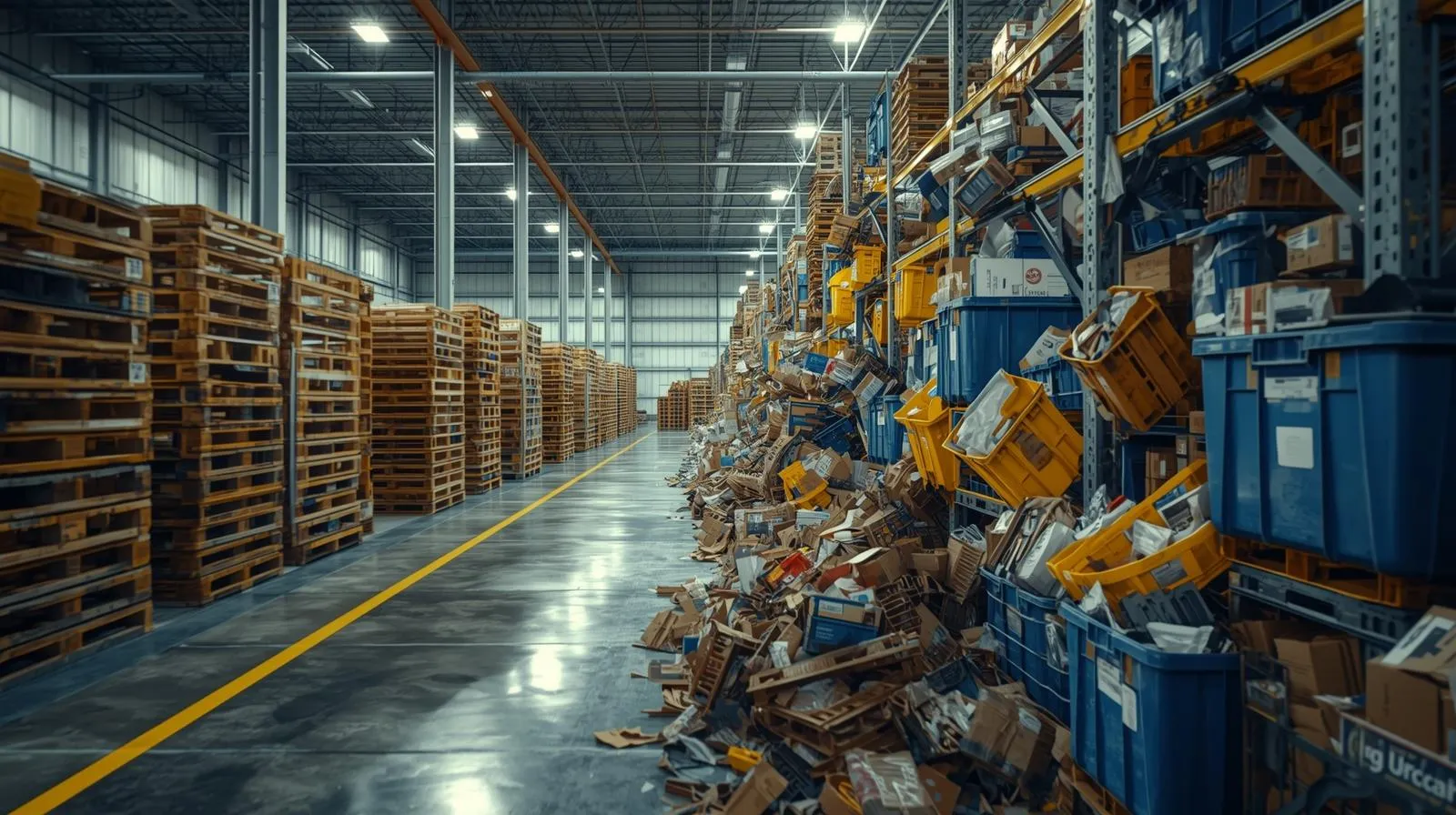How Asset Lifecycle Optimization In Hospitality Can Reduce Costs

Asset lifecycle optimization in hospitality is critical to maintaining smooth operations, delivering exceptional guest experiences, and controlling costs. Hotels rely on high-end kitchen equipment, HVAC systems, furniture, and linens. These assets need tracking, maintenance, and timely replacement.
Poor asset management can lead to increased costs from premature replacements, unexpected breakdowns, and inefficient use of resources.
Dalos is an IoT-powered asset intelligence platform. It helps hotels and resorts optimize the lifecycles of their assets through better management practices. This ensures that equipment and resources are used efficiently, maintained regularly, and replaced at the right time.
By optimizing the lifecycle of critical assets, Dalos helps hospitality businesses reduce operational costs. It also improves service quality and extends the longevity of their investments.
In this article, we’ll explore how asset lifecycle optimization can benefit the hospitality industry and how Dalos simplifies this process.
The Importance of Asset Lifecycle Management in Hospitality
In a hotel or resort, assets range from essential operational equipment, such as HVAC systems, elevators, and kitchen appliances. They also include guest-facing items, such as bedding, furniture, and technology systems.
Each of these assets has a specific lifecycle—from acquisition and usage to maintenance and eventual replacement.
When assets are not managed effectively, it can lead to:
- Premature Replacements: Businesses that let assets go overused or poorly maintained often run the risk of needing to replace equipment sooner than expected, driving up costs.
- Increased Downtime: Equipment breakdowns can disrupt guest services, resulting in higher repair costs, delayed service delivery, and negative guest experiences.
- Inefficient Resource Allocation: Without accurate data on asset condition and usage, hotels may underutilize certain assets while overusing others. This leads to uneven wear and tear and inefficient use of resources.
To avoid these pitfalls, hospitality businesses must adopt a lifecycle management approach that tracks asset performance from acquisition to disposal. By doing this, a business ensures that each asset is used to its fullest potential while minimizing costs.
How Dalos Optimizes Asset Lifecycles in the Hospitality Industry
Dalos provides a comprehensive solution for asset lifecycle management in hospitality by offering real-time tracking and predictive maintenance. Furthermore, it provides data-driven insights that help hotels and resorts manage their assets more effectively.
Here’s how Dalos helps hospitality businesses optimize their asset lifecycles, reduce costs, and improve service quality:
1. Real-Time Asset Monitoring for Better Resource Utilization
Dalos uses IoT-enabled sensors to provide hotels and resorts with real-time visibility into the location, condition, and usage of their assets. Whether it’s a kitchen appliance, HVAC unit, or piece of guest furniture, Dalos tracks each asset’s performance in real-time, helping businesses understand how resources are being used.
How This Optimizes Asset Lifecycles:
- Improved Asset Allocation: Dalos’ real-time tracking helps hospitality managers monitor equipment usage and, consequently, optimize resource allocation effectively. As a result, Dalos prevents certain assets from being overused while others sit idle.
- Avoid Overuse: With real-time usage data, managers can prevent the overuse of high-value assets. This reduces wear and tear and extends the lifecycle of critical equipment.
- Reduce Waste: Dalos helps hospitality businesses avoid unnecessary purchases and waste by ensuring they fully utilize assets throughout their lifecycle. This optimizes resource allocation and saves on replacement costs.
2. Predictive Maintenance to Minimize Downtime and Repair Costs
Dalos addresses asset downtime by utilizing predictive maintenance capabilities. Furthermore, it leverages IoT sensor data to monitor asset health and predict maintenance needs before failures occur.
How Predictive Maintenance Optimizes Lifecycles:
- Prevent Unexpected Breakdowns: Dalos tracks key performance metrics, such as temperature, operating hours, and energy consumption. This helps detect allowing hospitality managers to schedule maintenance before equipment breaks down, reducing downtime and repair costs.
- Extend Asset Lifespan: Regular, data-driven maintenance helps keep assets in optimal working condition and extend their lifespan. This ensures that they are replaced only when necessary.
- Reduce Maintenance Costs: By catching issues early, Dalos reduces the need for expensive emergency repairs. It helps hotels avoid the higher costs associated with reactive maintenance.
3. Automated Maintenance Scheduling to Keep Assets in Optimal Condition
Hospitality managers can find manually tracking maintenance schedules for hundreds (or even thousands) of assets challenging. Dalos simplifies this process by providing automated maintenance scheduling, based on the real-time performance of each asset.
How Automated Scheduling Reduces Costs:
- Avoid Over-Maintenance: Dalos ensures that assets are serviced based on their actual condition and usage. This prevents over-maintenance that can take equipment offline unnecessarily and increase operational costs.
- Ensure Compliance with Warranty Terms: Dalos’ automated scheduling, therefore, helps hospitality businesses stay compliant with warranty requirements. Consequently, this reduces the risk of voiding coverage. Moreover, it ensures that assets are serviced according to manufacturer specifications.
- Minimize Downtime: Dalos ensures that equipment remains operational when it’s needed most by scheduling maintenance at optimal times. Consequently, this reduces downtime and, in turn, improves guest service.
4. Optimizing Replacement Decisions with Data-Driven Insights
Dalos provides data-driven insights that help hospitality managers make informed decisions about when to replace assets, ensuring that replacements are timed perfectly to maximize value.
How Data-Driven Insights Help with Lifecycle Management:
- Accurate Replacement Planning: Dalos collects detailed data on asset performance, maintenance history, and usage patterns, thereby allowing hospitality businesses to plan for replacements based on actual asset conditions, rather than arbitrary timelines.
- Avoid Premature Replacements: By providing insights into how long assets can remain operational with regular maintenance, Dalos helps hotels avoid the unnecessary cost of premature replacements.
- Budget Forecasting: Dalos provides clear insights into when major equipment replacements will be needed, helping hospitality businesses forecast their capital expenditures. This improves budgeting accuracy and enhances cost control.
Improving Guest Satisfaction Through Seamless Operations
In the hospitality industry, guest satisfaction is paramount. Equipment failures can lead to disruptions in service, negative reviews, and a loss of business. By optimizing the lifecycle of critical assets, Dalos ensures seamless operations and enhanced guest experiences.
Asset Lifecycle Optimization In Hospitality Can Reduce Costs
Effective asset lifecycle management in hospitality is essential to controlling costs, maintaining high service standards, and ensuring operational efficiency. Dalos’ Unified Asset Intelligence Platform provides hospitality businesses with the tools they need to optimize the lifecycles of their assets, reduce costs through better maintenance practices, and improve service quality.
By implementing Dalos, hospitality leaders can extend the lifespan of their assets, reduce repair and replacement costs, and deliver an exceptional guest experience—ultimately driving profitability and long-term success in a competitive industry.
Recommended Articles
- Rami El-Chafei
- •
- December 10, 2025
The Reverse Logistics Problem Nobody Talks About: Why Your Reusable Assets Keep Disappearing
If you rely on reusable containers or pallets, your biggest losses may be hiding in reverse logistics. While outbound shipments get full tracking, assets routinely vanish on the return journey—driving...
- Rami El-Chafei
- •
- November 23, 2025
How IoT-Driven Platforms are Transforming Logistics Operations
Transforming Logistic Operations With IOT-Driven Platform As we move further into 2025, the logistics industry is undergoing a profound transformation, largely fueled by the rise of Internet of Things (IoT)...
- Rami El-Chafei
- •
- November 17, 2025
How Dalos Enables Smart Asset Monitoring for Hospitality
Dalos' Smart Asset Monitoring solutions enhance efficiency and elevate guest experiences in the hospitality industry. Leveraging IoT and advanced analytics, streamline operations, optimize asset performance, and ensure seamless service across...






